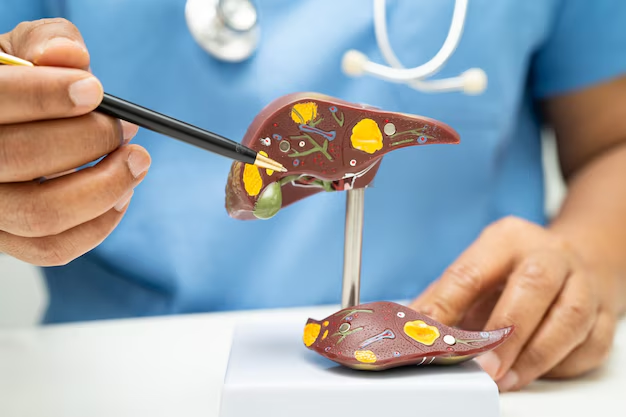Can Pancreatitis Vanish? Discover What You Need to Know
Pancreatitis—a condition characterized by inflammation of the pancreas—can be a perplexing and painful experience. As you or a loved one faces this diagnosis, you might find yourself asking, "Does pancreatitis go away?" Let's dive into this complex question and uncover the answers that provide understanding and hope.
Understanding Pancreatitis: The Basics
Before addressing the common question of whether pancreatitis resolves, let's first understand what pancreatitis actually is.
What is Pancreatitis?
Pancreatitis occurs when the pancreas becomes inflamed, disrupting its ability to function correctly. The pancreas plays a crucial role in digestion, aiding in the breakdown of carbohydrates, proteins, and fats, and regulating blood sugar levels through insulin production.
Acute vs. Chronic Pancreatitis
Pancreatitis can manifest in two primary forms:
Acute Pancreatitis: This form involves a sudden onset of inflammation that can be severe but often resolves within a few days to weeks. It's typically triggered by gallstones or excessive alcohol consumption.
Chronic Pancreatitis: Unlike its acute counterpart, chronic pancreatitis is a long-lasting condition that results from prolonged inflammation, often leading to permanent damage. Chronic cases are more complex to manage and may not "go away" completely.
Does Pancreatitis Go Away? Exploring the Possibilities
The answer to whether pancreatitis goes away largely depends on the type and cause of the condition.
Acute Pancreatitis: Hope for Recovery
Acute pancreatitis often offers a more promising outlook. With prompt medical intervention, dietary changes, and lifestyle adjustments, many people recover fully. Here’s how you can support potential recovery:
- Immediate Medical Attention: Seeking treatment at the onset of symptoms is crucial.
- Lifestyle Changes: If alcohol or dietary habits are contributing factors, modifying these can hasten recovery.
- Follow-Up Care: Regular check-ups to monitor pancreas health can help prevent recurrence.
Chronic Pancreatitis: Managing the Long-Term Condition
While chronic pancreatitis may not fully "go away," it is manageable:
- Medication: To manage pain and aid digestion.
- Dietary Adjustments: A low-fat diet can alleviate symptoms.
- Enzyme Supplements: These may be necessary to aid digestion if the pancreas cannot produce enough digestive enzymes.
Identifying Causes: The Key to Treatment
Identifying the cause of pancreatitis is essential to determine how likely it might go away or improve with treatment. Common causes include:
- Gallstones: Often a trigger for acute pancreatitis, surgical removal can prevent future episodes.
- Alcohol: Chronic use is a primary cause of chronic pancreatitis. Reducing or eliminating alcohol can significantly affect outcomes.
- Genetic Factors: Some forms of pancreatitis are genetic. Understanding this can lead to better-targeted treatments.
Practical Lifestyle Adjustments for Pancreatitis
Regardless of whether your pancreatitis is acute or chronic, certain lifestyle adjustments can make a significant difference.
Dietary Tips to Support Pancreas Health
Supporting pancreas health starts with what you eat:
- Low-Fat Foods: Reduce stress on the pancreas by consuming foods low in fat.
- Smaller, Frequent Meals: This aids digestion and reduces pancreatic strain.
- Hydration: Staying well-hydrated is crucial for overall digestive health.
Avoid Alcohol and Smoke
Eliminating alcohol and avoiding smoking can drastically reduce episodes and symptoms, especially for chronic pancreatitis sufferers.
Regular Exercise and Weight Management
Maintaining a healthy weight and engaging in regular exercise supports overall health, which can help in managing pancreatitis.
Emotional and Psychological Implications
Living with pancreatitis isn't just a physical battle; it can take a toll emotionally and mentally.
Coping Strategies
- Seek Support: Join support groups to connect with others who understand your journey.
- Mindfulness Practices: Techniques like meditation and yoga can help manage stress and improve emotional well-being.
When to Seek Medical Help?
Understanding when to seek medical care is vital for preventing complications:
- Unresolved Pain: Persistent or severe pain should not be ignored.
- Digestive Issues: Significant changes in bowel movements or digestion indicate a need for medical evaluation.
- Fever and Jaundice: These could be signs of complications and warrant immediate attention.
The Role of Healthcare Professionals
Regular interaction with healthcare providers can help manage the condition effectively:
- Nutritionists: Can tailor eating plans to meet your specific needs.
- Gastroenterologists: Specialists who focus on diseases of the digestive system can offer more specialized care.
Empowering Yourself: Understanding Options
Understanding your condition is empowering. While the road to management or recovery from pancreatitis may vary, staying informed allows you to make the best decisions about your health.
Quick Pancreatitis Insights 🌟
- Acute Pancreatitis: Often resolves with proper treatment and lifestyle changes.
- Chronic Pancreatitis: Managed through medication, diet, and lifestyle but may not fully "go away."
- Diet is Key: Focus on low-fat foods and hydration to support pancreas health.
- Avoid Alcohol: A vital step in managing both forms of pancreatitis.
- Regular Check-Ups: Essential to monitor health and prevent complications.
- Seek Support: Emotional well-being is as important as physical health.
Remember, while this guide provides an overview, it is essential to consult healthcare professionals for personalized advice and treatment plans. Embrace the power of knowledge, and take proactive steps to manage or recover from pancreatitis effectively. 🏥💪

Related Articles
- Can Ozempic Cause Pancreatitis
- Can Pancreatitis Be Cured
- Can Pancreatitis Cause Diarrhea
- Can Pancreatitis Go Away On Its Own
- Does Pancreatic Cancer Show In Blood Tests
- Does Pancreatitis Cause Diarrhea
- Does Pancreatitis Cause Gas
- Does Pancreatitis Go Away On Its Own
- How Do I Know If I Have Pancreatitis
- How Do You Cure Pancreatitis
